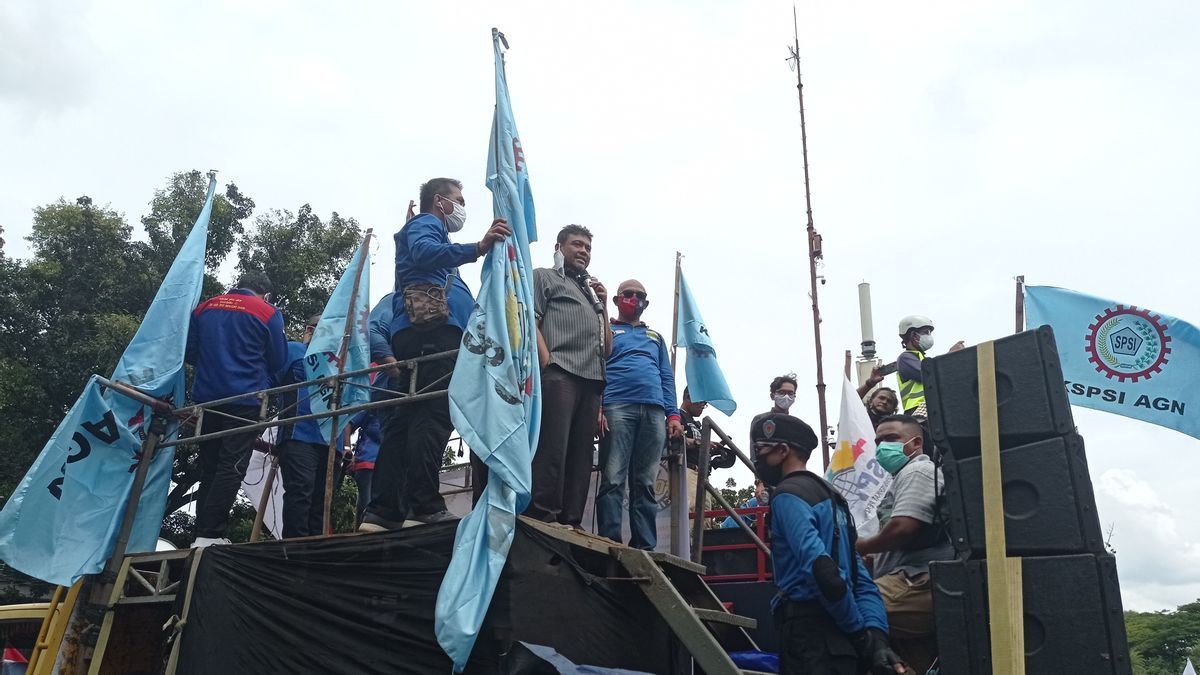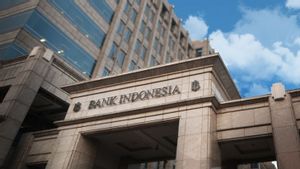YOGYAKARTA Plans for workers and other workers to strike a national strike for 2 days are busy being discussed. The discourse of the strike emerged after the President of the Labor Party and the President of the KSPI, Said Iqbal, stated that he would carry out a national strike if the Government raised the wages of workers in 2024 by an amount of less than 15 percent.
"The Labor Party rejects the increase in the value of the UMP throughout Indonesia in 2024 below 15 percent. Including the UMP in DKI Jakarta Province," said Said Iqbal in a written statement, quoted Monday, November 20.
Said Iqbal explained that the national strike will be held for two days. It is planned that the action will be held between November 30 and December 13, 2023.
He also emphasized that the struggle of workers in the national strike was something that was legal and common. In fact, such actions are also carried out in other countries. The purpose of the strike itself is to get the Government's attention so that they want to listen to the voices of the workers.
It should be noted that workers' actions to hold strikes are often carried out. Apart from the issue of a national strike later, there are several impacts of workers striking in general, namely as follows.
1. Company Losses
When workers decide to hold a strike, the company will suffer material losses. Workers who go on strike trigger the loss of working hours, while production machines cannot operate normally. This certainly invites a series of other losses for the company to the company's owners.
2. Hampered Economic Growth
Indirectly, the economy of a country will be hampered if workers go on strike, especially if the action is carried out in the long term. Micro, the strike will reduce the production results. Meanwhile, macro will have an impact on reducing economic growth.
3. Politics and the Economy are not stable
Many cases of strike by workers resulted in economic and political instability. One example of this event is ahead of the 1997 monetary crisis.
4. Integrated Investment
Investors both from within the country and abroad chose to refrain from investing in certain countries due to a strike. This is because the action is considered to trigger material losses for investors.
5. Reduce State Revenue
It is undeniable that national strike activities will reduce state revenue, especially if the action is carried out widely. Disorders of state revenues can come from reduced taxes, or due to disruption of export activities.
6. Workers Threatened with Loss of Work
The national strike action is not only felt by companies and the state, but can be felt by the workers themselves. Workers can be threatened with losing their jobs. This risk can occur in several conditions, for example, workers who hold a strike to carry out their actions with violence or crime.
7. Public Service Disrupted
VOIR éGALEMENT:
The strike of work is usually accompanied by demonstrations held in public places. The number of people who take part in this action can also reach tens of thousands of people. At that time, public services can be disrupted. For example, public transportation cannot serve the general public normally, or there is a long traffic jam.
That's information regarding workers on a 2-day national strike. Visit VOI.ID to get other interesting information.
The English, Chinese, Japanese, Arabic, and French versions are automatically generated by the AI. So there may still be inaccuracies in translating, please always see Indonesian as our main language. (system supported by DigitalSiber.id)


















